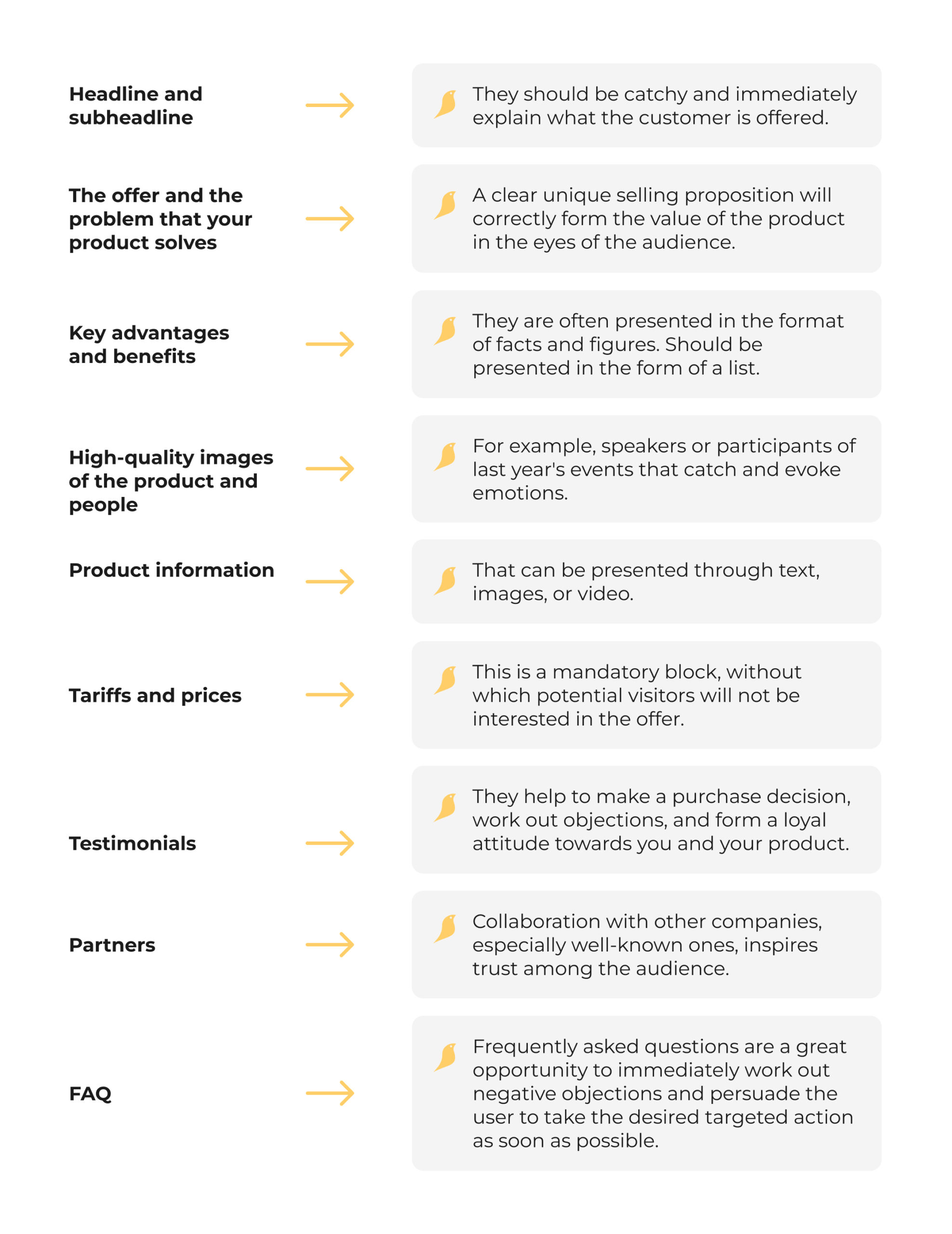It is quite difficult to promote offline events in the modern world, where online formats are more popular. To make a potential visitor want and be able to come to an offline event, you need to inform them well, make them interested, and remind them of yourself several times. A high-quality marketing strategy will help you with this!
In this article, we will tell you about:
- factors that determine the promotion of offline events;
- a strategy for promoting offline events based on the case study of the remote marketing department of Solve Marketing.
Let’s go!
Factors that determine the promotion of offline events
The goal of promoting offline events is to gather not just an interested audience, but people who are really ready to attend them. This complicates the task. Therefore, before promoting offline events, consider the factors on which it will depend:

For example, if it’s a large-scale conference and it’s scheduled to take place in a month, you won’t have enough time to attract the desired number of visitors. After all, the larger the event is, the more time it takes to promote it.
The theme of the event is also an important factor. The following types of events are common:
- professional;
- entertainment;
- sports events;
- cultural;
- and others.
Let us consider two of them — entertainment and professional events.
If we are talking about promoting professional events, the key factors here will be the popularity of speakers, lecture topics, and the target audience that should be interested in a particular industry.
For example, if Elon Musk decides to speak on marketing chips in his projects, it will be a win-win situation — all that will be left is to inform the audience.
And to promote entertainment events, you first need to identify the audience that will be interested in it. To do this, we recommend answering the following questions:

Strategy for promoting offline events based on the case of Solve Marketing’s remote marketing department
The Solve Marketing team knows firsthand how to promote offline events. We have experience in promoting an offline event — the BLACK SEA PEARL Congress of Anesthesiologists. It is regularly held by Medvoice, an international medical and educational platform for the development of professional skills.
In 2022, we were approached by a client with the following need: to attract 500 attendees to the conference in just 2.5 months.
What is the complexity of the task?
Due to the Covid-19 pandemic and quarantine restrictions, all offline conferences were canceled in 2020. The organizers could not predict when the restrictions would be lifted, so they decided to hold the conference just 2.5 months before the event. This is a very short time to promote a medical conference.
In addition, the situation was complicated by the following factors:
- this is an international congress that attracts people from all over the world;
- the event was held in the summer, when people plan their time in advance, for example, for vacation.
So we didn’t waste any time — we conducted a marketing analysis as soon as possible and built a promotion strategy that allowed us to quickly achieve our goal.
How to promote an offline event? Now we will give you step-by-step instructions that we used in our own practice.
Step 1. Engage your existing base
If the event has already been held several times, you can re-engage the audience that attended them. Of course, provided that the speakers, topics, and program of the event change.
Step 2. Create or finalize the landing page of the offline event
A landing page is a one-page website that encourages the user to perform a specific targeted action by presenting a product. In this case, its task is to register for the event.
What should an effective landing page look like?
It should have:
- a unique selling proposition that will allow you to differentiate yourself from competitors and look unique on the market;
- effective text: catchy headlines and subheadings, characteristics, product advantages, benefits for a potential client, etc;
- thoughtful design that takes into account the specifics of the target audience and web design principles;
- structure that meets the main goals of promotion.
Now let’s talk in more detail about the last point — the landing page structure, as it directly affects the conversion rate of a website. This is a certain sequence of blocks that is selected and arranged in such a way as to bring the visitor to the desired target action.
Of course, there is no universal selling formula, but we have compiled a list of key blocks for you:

And to keep potential attendees in touch with the offer until they decide to attend the event, set up ads on the event landing page.
Those who leave their email addresses will receive email newsletters. And for those who did not perform the targeted action, you will also set up remarketing — advertising aimed at users who have already visited the site.
Read more about this below.
Step 3. Set up and run ads with Facebook ADS and Google ADS tools
The key to successful advertising is testing. So we recommend testing different audiences:
- audience by interest;
- look-a-like audience — users who are similar in interests, behavior, and other characteristics to those who have already interacted with the company’s resources;
- general audience.
Also, test various parameters, such as:

Use static and dynamic creatives in your ads. For example, we also tested video messages to convey the right emotions and personalize the message.
To create it, we wrote down the terms of reference for the speakers on how to properly shoot it and draw the attention of potential conference attendees.
As we mentioned above, we also set up and launched remarketing for those who visited the landing page but did not complete the targeted action. And we promptly launched promotional publications.
Step 4. Design and send an email campaign
Situational email marketing is the practice of promoting an upcoming event through emails.
The method consists in sending a series of emails before and after the event. This is how we inform potential attendees, engage them, communicate with them, and warm them up to buying a ticket.
We’ve prepared an example of a series of emails to promote offline events:
- Introduction letter. This is where we describe the event, its features and benefits that may be of interest to potential participants.
- Event program. This email includes speakers, their lectures, interactive activities, and much more.
- Registration confirmation. After the participant registers, you need to send them a confirmation email. It will contain registration details: date, time, venue, or other necessary information.
- Reminders about the event. It’s important to send a reminder email every few days or weeks, which will also include the date, time, and location of the event, as well as important changes or instructions for participants.
- Post-event email. This is where we thank participants for their attendance. We can also offer to leave feedback or share their impressions on social networks.
Of course, the content and structure of an email campaign can vary depending on the nature of the offline event and your goals.
Step 5. Think of additional incentives that will positively influence the audience’s decision
Promotions, gifts, and raffles speed up the purchase decision process. With this in mind, we formed a prize pool consisting of gift certificates from the conference organizer Medvoice. They could be used to pay for any course on the platform in full or in part.
This solution had 3 advantages:
- available resources were used at no extra cost;
- a positive image of Medvoice was formed;
- the promotion of the event was accelerated.
We used social networks, the website, and email newsletters to spread the word about the giveaway.
Conclusion
The promotion of offline events is influenced by many factors: from the topic of the event and speakers to the time and place of the event. Therefore, we recommend planning marketing for offline events in advance.
As professional event managers joke: you need to plan a new conference immediately after the start of the previous one.
We also recommend using all possible online marketing tools and channels: from email newsletters to setting up Facebook ADS and Google ADS ads.




